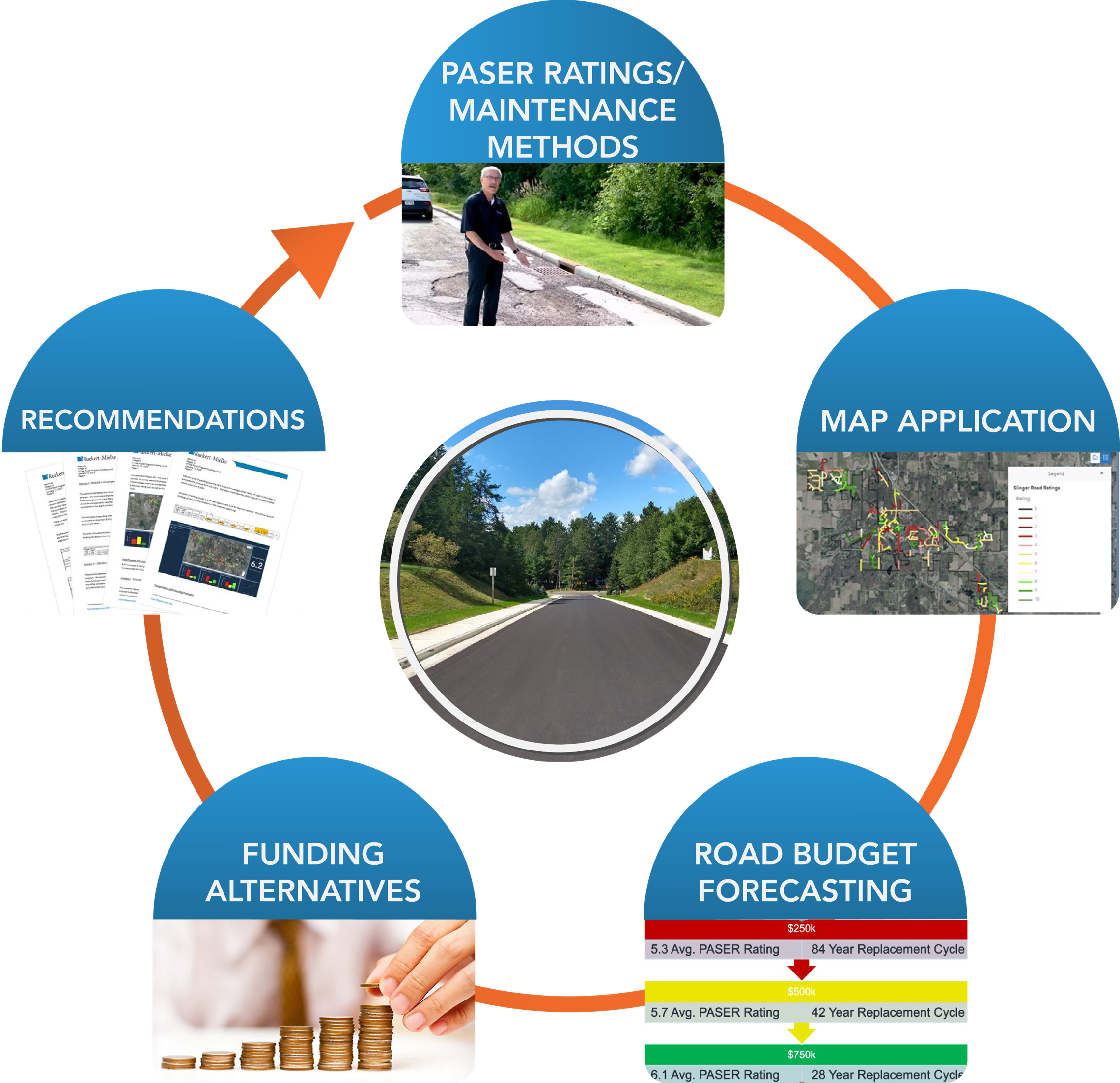Every two years, Wisconsin communities must assess their roads and submit ratings to the Wisconsin Department of Transportation (WisDOT). Using the PASER system, roads are rated on a scale from 1 (worst) to 10 (best). These evaluations aren’t just a requirement, they’re a critical tool for planning future improvements, budgeting (including your Capital Improvement Plan), and securing funding.
For some communities, this is just another task to cross off the list and there isn’t much thought given to the information gathered after the ratings are completed. Accurate ratings reveal deterioration trends, funding needs, and help prevent costly repairs down the line. It’s crucial that communities take the time to accurately rate their roadways and review the data when it’s completed.
Rating Best Practices:
Gather and verify annual mileage certification data
Refresh yourself on the key characteristics of the PASER scale and types of pavement distresses and failures
Utilize consistent rating staff or have consistent training
Develop a plan and a route to efficiently evaluate your streets
Conduct ratings in the Spring or Fall for the most accurate pavement conditions
Conduct ratings in the early morning or after a rainfall to better assess pavement cracking
Evaluate drainage patterns, traffic, or site conditions contributing to deterioration and failures
Once you’ve completed your ratings and uploaded the information into the Wisconsin Information System for Local Roads (WISLR), it’s important to understand which roads are failing, why they’re failing, and what you can do to cost-effectively extend the life of some of your largest assets. The four biggest causes of failure in asphalt pavements are inadequate drainage, poor or failing base, fatigue, and poor or improper preventative maintenance.
Understanding the root cause of your pavement failures will help you better evaluate the costs for repairs or maintenance that may be required. Understanding and catching deterioration trends early can also help you get in front of prematurely failing roadways. Poorly rated roadways also have a direct correlation to decreased fuel efficiency and increased maintenance costs on your residents’ vehicles. Properly managing this will benefit your residents in more than one way.
Ruekert & Mielke’s expert staff can help your community accurately rate and evaluate roadways, submit data to the WISLR system, and develop a strategic pavement management plan that will maximize your taxpayers’ dollars by implementing the correct maintenance or rehabilitation practices for your roadways. Whether you need hands-on assistance or expert training for your staff, we’re here to ensure your community’s roads remain safe and cost-effective.
About the Author
PETER GESCH, P.E.
MUNICIPAL SERVICES TEAM LEADER
Peter is a professional engineer who provides design and construction administration services on a wide array of projects, giving him comprehensive knowledge of the industry. Peter is versed in Municipal Pavement Management and assists communities with evaluating their pavement infrastructure and planning for long term solutions. Peter’s strong skills in teamwork, communication, and leadership allows him to manage projects and work with municipal officials to develop solutions that exceed expectations.







